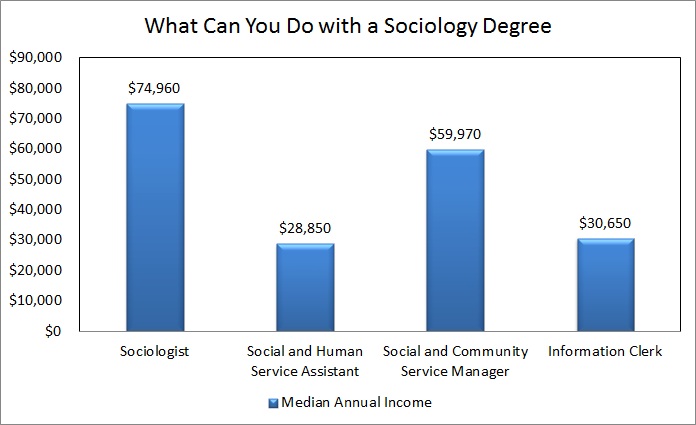Imagine a world where social theory meets real-world problems. This is the realm of clinical sociology, a fascinating field that blends the analytical rigor of sociological theory with practical applications, helping individuals and communities navigate complex social challenges. If you’re drawn to the intersection of social issues and practical solutions, exploring a clinical sociology degree could be the perfect path for you.

Image: schoolwalls.blogspot.com
This article will delve into the world of clinical sociology, unpacking its origins, defining its core principles, and showcasing how it empowers individuals to create meaningful change. We will explore the diverse career paths a clinical sociology degree can unlock and the crucial role it plays in addressing social inequities, promoting well-being, and fostering more inclusive and equitable societies.
What is Clinical Sociology?
Clinical sociology, often known as applied sociology, is a specialized area of sociology that focuses on applying sociological knowledge and methods to real-world social problems. Unlike traditional sociological research, which often concentrates on analyzing social phenomena, clinical sociology takes a more hands-on approach, seeking to understand and address social issues through direct intervention and collaboration with individuals, communities, and organizations.
Clinical sociologists utilize various tools and techniques from their field, including qualitative and quantitative research methods, social network analysis, and community engagement strategies, to assess social problems, understand their root causes, and propose practical solutions. They strive to not only analyze social issues but also facilitate change by working directly with individuals, groups, and organizations to improve social conditions and enhance well-being.
The Origins and Development of Clinical Sociology
The roots of clinical sociology can be traced back to the late 19th and early 20th centuries, a period marked by rapid societal changes and significant social problems. Early sociologists, like Jane Addams and W.E.B. Du Bois, recognized the need to apply sociological insights to address social issues directly, laying the groundwork for the development of clinical sociology. However, it wasn’t until the mid-20th century that the field gained formal recognition and began to flourish.
The rise of clinical sociology coincided with the increasing complexities of modern society and the growing demand for practical solutions to address social problems. Organizations and institutions began to recognize the value of sociological perspectives in understanding and addressing issues like poverty, inequality, crime, and community development. This recognition fuelled the development of clinical sociology programs and research centers dedicated to applying sociological knowledge to real-world challenges.
Over the years, clinical sociology has continued to evolve, adapting to changing social landscapes and incorporating new technologies and approaches. Today, clinical sociologists are actively involved in diverse areas, including healthcare, education, criminal justice, community development, and social policy. Their work encompasses research, program evaluation, community engagement, policy advocacy, and direct intervention to improve social conditions.
Key Concepts in Clinical Sociology
Clinical sociology draws upon various core concepts from the broader discipline of sociology, including:
- Social Structure: Understanding the underlying patterns and systems that shape social interactions and influence individual and group behaviors is fundamental to clinical sociology. Analyzing social structures like class, race, gender, and power dynamics helps identify the root causes of social problems.
- Social Inequality: Examining the unequal distribution of resources, opportunities, and rights within society is a crucial aspect of clinical sociology. Understanding the dynamics of social inequality is vital for targeting interventions and promoting social justice.
- Social Change: Clinical sociologists are active agents of social change, working to modify social conditions and improve lives. They employ strategies like community organizing, policy advocacy, and social intervention to create positive change.
- Social Networks: Analyzing the connections and relationships between individuals and groups helps clinical sociologists understand the flow of information and resources within communities. This knowledge empowers them to develop tailored interventions and support networks.
These concepts provide the theoretical foundation for clinical sociologists to understand and address social problems. By applying these principles, they gain valuable insights into the complexities of social issues and can develop appropriate interventions to create positive change.

Image: webapi.bu.edu
Clinical Sociology in Action: Real-world Applications
Clinical sociology is a dynamic field with a wide range of applications. Here are some examples of how clinical sociologists utilize their skills and knowledge to make a difference:
1. Healthcare:
Clinical sociologists play a vital role in improving healthcare access and outcomes. They conduct research on healthcare disparities, analyze healthcare systems, and design interventions to promote equity and improve patient experiences. For example, they might work to identify the social factors contributing to health inequities and develop programs to address these underlying causes.
2. Education:
In education, clinical sociologists analyze educational systems, identify barriers to learning, and develop strategies to improve student achievement. They might investigate the impact of social factors on academic success, assess the effectiveness of educational programs, and work to create more inclusive and equitable school environments.
3. Criminal Justice:
Clinical sociologists work within the criminal justice system to understand the social causes of crime, develop effective crime prevention strategies, and improve rehabilitation programs. They might research the societal factors that contribute to criminal behavior, evaluate the effectiveness of different policing methods, and work to reduce recidivism rates.
4. Community Development:
Clinical sociologists are often involved in community development projects, working with residents to address local challenges, create social capital, and build stronger communities. They might organize community meetings, conduct needs assessments, and facilitate collaborative projects to improve the quality of life for residents.
5. Social Policy:
Clinical sociologists provide valuable insights to policymakers on social issues and develop evidence-based policies to address social problems. They might analyze social trends, conduct policy evaluations, and advocate for policy changes to promote social justice and improve the well-being of individuals and communities.
Clinical Sociology: A Path to Meaningful Change
A clinical sociology degree can open doors to a wide range of rewarding career paths. Graduates have the potential to make a tangible difference in the lives of others by applying their sociological knowledge to practical challenges. Here are some potential career paths:
- Community Organizer: Mobilizing communities to address social problems and achieve collective goals.
- Social Policy Analyst: Conducting research and providing data-driven policy recommendations on social issues.
- Program Evaluator: Assessing the effectiveness of social programs and recommending improvements.
- Community Development Specialist: Working to revitalize and improve communities by addressing social needs.
- Healthcare Advocate: Promoting access to healthcare for underserved populations and advocating for equitable healthcare systems.
- Social Worker: Providing direct support and services to individuals and families facing social challenges.
- Researcher: Conducting sociological research to understand and address social problems.
The Significance of a Clinical Sociology Degree
A clinical sociology degree provides students with a robust foundation in both theoretical and applied sociology. They gain a deep understanding of social structures, inequality, and social change, along with essential skills in research methodology, data analysis, communication, and community engagement. This unique combination of knowledge and skills equips graduates to navigate complex social issues and effectively engage in efforts to create meaningful change.
If you are passionate about making a difference in the world, a clinical sociology degree can offer a unique and valuable path to fulfilling your aspirations. By combining social consciousness with practical application, you can become an agent for change, fostering more inclusive, equitable, and just societies.
Clinical Sociology Degree
Conclusion
Clinical sociology is a vibrant field where social theory meets practical solutions. By merging sociological insights with real-world challenges, clinical sociologists empower individuals, communities, and organizations to navigate complex social problems and create positive change. A clinical sociology degree offers a rewarding career path for those seeking to make a difference in the world. Whether you aspire to work in healthcare, education, criminal justice, community development, or social policy, a clinical sociology degree can provide a valuable foundation for tackling social challenges and contributing to a healthier, more equitable, and just society.

:max_bytes(150000):strip_icc()/OrangeGloEverydayHardwoodFloorCleaner22oz-5a95a4dd04d1cf0037cbd59c.jpeg?w=740&resize=740,414&ssl=1)




